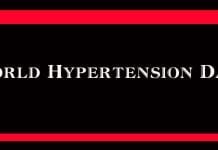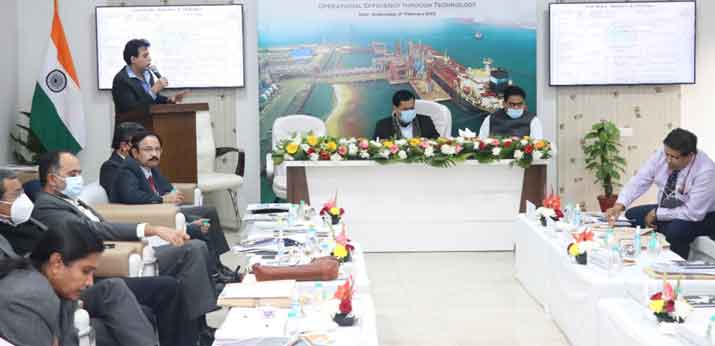A two day international seminar on wheat in Goa focused on ways to tackle food and nutritional security of the country.Many leading wheat producing and processing promotion boards together has organised the Eigth International Wheat Seminar in Goa. Many New Ideas & Innovation for Growth related to the wheat & wheat Products industry were discussed during the second day.
Day 2 of the Seminar was about Food Safety & Regulations and began with an engaging panel discussion that saw participation from many industry stalwarts.
Ms. Madhavi Das, Chief Management Services Officer, FSSAI chaired the discussions while Dr. (Mrs.) A. Savitri, Head, Corporate Scientific and Regulatory Affairs, Britannia Industries Ltd, co chaired it. Mr H K Batra, MD, Perfect Bread was the Session Lead. Dr. S.C. Khurana, FSSAI gave his valuable comments about Food Safety and Standards Regulations on Wheat and Wheat based products while Dr. A. Savitri, Britannia Industries Ltd added her view about Food Additives and Compliance. Dr. Davinder Dhingra, Principal Scientist, ICAR-Government of India spoke about the importance of Analytical Instruments, while Mr Saleem Veljee, Director, Directorate of Food & Drug Administration, Goa gave his remarks too. The discussions ended with Mr Ujjwal Kumar, CEO of Food Safety First giving his valuable view on Food Safety Compliance.
Currently, wheat growing in India is divided into six zones, as they differ agro-ecologically and varieties have been developed taking into account the growth period of the crop, soil type and other general requirements. The Northern Hill Zone is still dominated by traditional cereal growing with varieties that mature in May/June, while the Southern Hill Zone has a miniscule area of few hundred hectares under the tropical cold humid environment. There are about 60 different varieties grown in the country.
After a brief break, Session 3 was about industry game changers for the period 2016-2025 – ideas and innovations. Major Rajiv Yadav, VP, Grains and Oilseeds, COFCO Agri, chaired this session while Mr Somnath Chatterjee, Divisional Manager-Procurement, ITC Ltd, co chaired it. Major Rajiv Yadav, COFCO Agri, opened the Panel discussions by speaking about Global Indian Wheat Trade and MrSumiitGuptaa, GM-Commercial, Adani Agri logistics Limited gave his thoughts about Easing of trade and, Logistic. This was followed by some thoughts on Global Wheat Markets and Import by Mr Sumit Gupta, McDonald Pelz Global Commodities and International Milling Practices by Mr Sunil Maheshwari, IAOM Education Committee Member.Dr. Santosh Singh, Ag Specialist, U.S. Department of Agriculture spoke about USDA’s outlook on Global Wheat Situation. Mr I.C. Chadda, Former GM, CWC added his ideas about Global Practices for Wheat Storage followed by Mr Madhavan R of AGARAM Industries on his view about Silos and Grain Handling Solutions.
After a much-needed lunch break that allowed a lot of networking, Session 4 began with wheat products, ingredients: emerging new technologies and trends. Mr Ajay Goyal, Co chairman, Organizing Committee, IWS and Managing Director, Shivaji Roller Flour Mill had the honour of chairing this session while Dr. Ratan K Sharma, Director – India Soy Food Program, U.S. Soybean Export Council Inc. co-chaired it. The opening address began with Mr Sunil Maheshwari, IAOM Education Committee Member enlightening the audience about The New 600 MT Whitewater Mill, LLC, while Dr. Ratan Sharma spoke about soy flour fortifications. Mr Lutz Popper, Technical Head, Muhlenchemie spoke about flour quality, Dr. Susana, R&D, PD Navkar, about Moving towards Safer Food Additives, while Mr K.C. Reddy, Director, Alapala, added information about Flour Milling Technology. Mr B.S. Muralidhara, GM Head of Grain Milling, Buhler (India) spoke about Milling efficiency and food safety. Mr Vinod Kapoor, Chairman- Technical Committee, IWS has some interesting views about Wheat Flour fortification with Soy and so was Mr Suresh Sakhare, Scientist, FMBCT, when he spoke about Multigrain Semolina. Dr. Subrata Dutta, Food Fortification Initiative, was the last speaker of this session with Wheat flour demand, supply& fortification with Haryana as focus.
Participants including roller flour mills, user industries, traders and multinational suppliers participated and deliberated issues such as global and domestic production, market dynamics, logistics, technological developments, nutrition, prices and risk management.
Dr. Ratan Sharma, Director, India and Asia Subcontinent Soy Food Program, U.S. Soybean Export Council, Inc. said that “India is highly malnourished country and soy is the least expensive source of protein with a great potential to combat with the malnutrition problem. Soybean contains all the nine essential amino acids required for the human body which is not available in any other vegetable source. Also soy is a good source of macro nutrients required for good nutrition which serves as an excellent complement to lysine-limited cereal protein. It is the cheapest legume having most of the neutraceutical properties. Soy and its supplements Increases muscles mass and weight, Improves brain development, Increases stamina, Improves immunity, Reduces fatigue and Improves the overall health”.
Dr. Ratan Sharma told that there are many soy products available in the Indian market which includes soy flour , soy dal analogue, fortified wheat flour, soy nuggets, soy flour, soymilk and tofu etc. Soy fortified wheat flour is the best option of including the soy products in the diet. It increases the protein, iron, calcium and vitamins substantially in the resultant Atta. Dr. Sharma further emphasized that USA produces and supplies the food specialty soybean which could be a good option for the soy food companies to improve their product quality and profitability in comparison to the Indian soybeans. India doesn’t grow food grade soybeans.
USSEC is working in India to explore the opportunity of its soybeans, soy meal and finished soy products. As per USSEC they provide highest quality raw material in the form of soybean and soy meal, soy oil etc. in the world.
At each sub-system, there are numerous considerations of growth, efficiency, remunerations and incentives to produce, finance and exchange, regulatory regime, social responsibilities, poverty alleviation, health and welfare of our fellow citizens. Each sub-system works within its own issues, and yet is dependent on, and influences other stake-holders. WPPS has been organizing a number of Seminars for the last many years on relevant themes concerning Wheat Value Chain encompassing farm to plate.






















